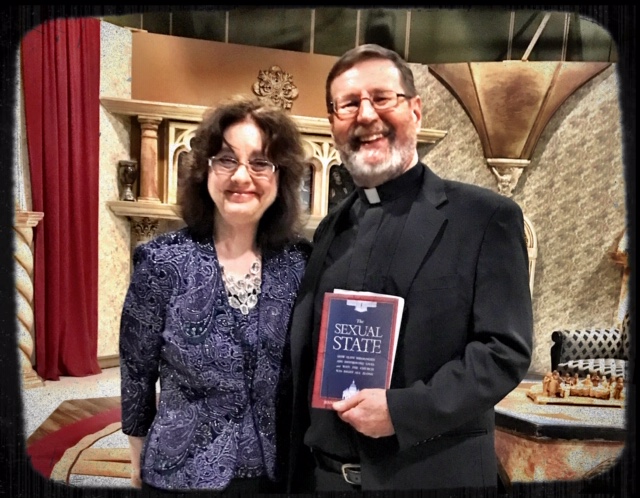
Epstein, the millionaire financier and admitted sex offender who pleaded not guilty July 9 to charges of sexual trafficking, allegedly got away with sickening crimes for a long time. But it would be a serious mistake to succumb to cynicism. “What do you expect? Wealthy guys like him have always gotten to do what they want. It is not fair to blame the sexual revolution for their abuses.”
That is, at best, a partial truth. The rich and powerful have always been able to buy their way out of problems that would crush an ordinary person. But the widespread acceptance of the sexual revolutionary ideology smooths their path. To an unprecedented extent, the reigning secular religion of our time enables sexual abuse, disarms victims and empowers predators.
“You don’t want to be a prude, do you?”
“You want to be ‘sex positive,’ don’t you?”
“Sex is nothing to feel guilty about.”
“You just have to take off your clothes and let him look at you. It is nothing be ashamed of.” (That’s one of Epstein’s contributions to the pick-up-line genre.)
“You were born this way.”
“God made you gay.”
Of course, the rich and powerful have always been able make promises to entice a sex partner into giving “consent.”

Hollywood mogul Weinstein promised his victims that he’d make them stars. Epstein offered modeling careers. McCarrick promised advancement in the Church. The sexual revolutionary ideology provides the predator added advantages, including aborting unwanted pregnancy and undermining nosy neighbors and other witnesses.
Epstein’s alleged network spanned the globe. It must have been supported and propped up by numerous people, some who actively participated and benefited. Others looked the other way, such as the superintendent of the apartment building where he housed his teenage “models” and the “modeling agency” staff and the pilots who flew his private jets that were fully decked out for his orgies.
The sexual revolution conveys the unmistakable message that everyone is entitled to do whatever they can get away with. Prosecutors say Epstein has three active U.S. passports and owns multiple jets and houses around the world, including his own private island. Witnesses and victims feared Epstein’s retaliation and blackmail. This is a man who appears to get away with a lot.
This ideology relieves people of nagging consciences. Epstein’s conscience is malformed, to put it mildly.
In 2011, he told the New York Post, “I’m not a sexual predator; I’m an ‘offender.’ It’s the difference between a murderer and a person who steals a bagel.” He once allegedly received three 12-year-old girls as a birthday present. He doesn’t need an ideology that justifies or excuses his actions.
However, the sexual revolutionary ideology weakens the already vulnerable. The Miami Herald’s investigative report into Epstein’s activities showed:
Most of the girls came from disadvantaged families, single-parent homes or foster care. Some had experienced troubles that belied their ages: They had parents and friends who committed suicide; mothers abused by husbands and boyfriends; fathers who molested and beat them. One girl had watched her stepfather strangle her 8-year-old stepbrother.
One of Epstein’s victims who was 14 when she was first recruited said, “We were stupid, poor children. We just wanted money for school clothes, for shoes. I remember wearing shoes too tight for three years in a row. We had no family and no guidance.”
Yes, rich and powerful men love this concept that sex is an entitlement.
The magisterium of the Catholic Church stands in direct opposition to the sexual revolution. The secular #MeToo movement is trying to combat sexual abuse. But the movement’s advocates do not seem to want to surrender the intellectual framework that enables it. They seem to be counting on a combination of legal action and periodic public shaming to stop predatory behavior. I believe this will never be enough. The power imbalances are too many and too severe.
The Catholic belief system tells us no one is entitled to sex. Children are entitled to a relationship with both of their parents. Women and men are entitled to the love and loyalty of their spouses.
Every human person is entitled to be born as the result of an act of love between their mother and father. This act of love is an icon of the love of God and that God’s love is the ultimate source of everything that exists. All of Catholicism’s prohibitions (for which we are ridiculed) are aimed at protecting these positive values.
Yes, our belief system makes us Public Enemy No. 1 of the sexual revolutionaries. We are a big problem for those who believe they are entitled to unlimited child-free, problem-free, guilt-free sex. Not only do we tell them they are wrong, but also our belief system equalizes people. The poorest girl from an unknown family is encouraged and supported in refusing sex to any man of any station, in the same way a daughter of a billionaire would be encouraged likewise.
Faithful Catholics despise clerical sex abusers not only for their crimes, which are bad enough. We hold them in contempt because they disgrace the one philosophical system that has a prayer of finally combating this toxic ideological soup in which we are all swimming.
The Epstein Network, surrounded by enablers or those who turned a blind eye, sounds all too much like the network of clergy abusers. Society does not yet have a full accounting of either system. As faithful Catholics, we want the same kind of reckoning for both kinds of abuse. We want a full investigation of both Epstein and clerical abusers. We want punishment for the guilty and restitution for the victims. We want protection for the innocent and the whistleblowers.
Be not afraid, believers! We are on the right side of history on this issue.
Continue reading “What Do Jeffrey Epstein, Harvey Weinstein and Theodore McCarrick Have in Common?”




 UPDATED FOR CLARITY
UPDATED FOR CLARITY



 My favorite article along those lines is
My favorite article along those lines is 

 As it happens, my father once told me about a case very much like this. In his Polish coal mining/farming community in Southern Ohio, he knew a woman with many children whose husband had abandoned the family. My father: “The priest made it so she could get married again.” I didn’t think to ask him what the priest did, but I assume that back in the 1930’s or thereabouts, he helped her get an annulment.
As it happens, my father once told me about a case very much like this. In his Polish coal mining/farming community in Southern Ohio, he knew a woman with many children whose husband had abandoned the family. My father: “The priest made it so she could get married again.” I didn’t think to ask him what the priest did, but I assume that back in the 1930’s or thereabouts, he helped her get an annulment.
